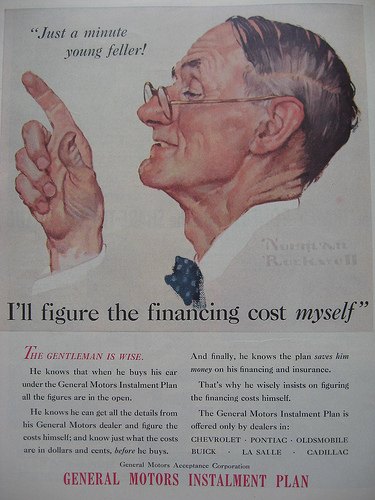Toyota Woes Drag Detroit Back Into Incentive Wars
The biggest storyline right now for America’s bailed-out automakers is how little they’ve been able to capitalize on Toyota’s stumbles. While Ford and Hyundai made hefty sales gains last month, both GM and Chrysler’s performances were distinctly unimproved by Toyota’s woes. And now that Toyota is launching major incentive packages to recover lost sales momentum, Detroit has no remaining incentive to not revert to the bad old practices of incentive dependence. With GM and Ford diving into the zero-percent war, Global Insight’s George Magliano tells Automotive News [sub]:
Incentives are going to be here into the third quarter. We’re not going to wean consumers off incentives any time soon. We’re stuck with it. They’re all jockeying for position… After clunkers everybody backed off incentives. Now they’re going to the whip again
More by Edward Niedermeyer
Latest Car Reviews
Read moreLatest Product Reviews
Read moreRecent Comments
- Jalop1991 In a manner similar to PHEV being the correct answer, I declare RPVs to be the correct answer here.We're doing it with certain aircraft; why not with cars on the ground, using hardware and tools like Telsa's "FSD" or GM's "SuperCruise" as the base?Take the local Uber driver out of the car, and put him in a professional centralized environment from where he drives me around. The system and the individual car can have awareness as well as gates, but he's responsible for the driving.Put the tech into my car, and let me buy it as needed. I need someone else to drive me home; hit the button and voila, I've hired a driver for the moment. I don't want to drive 11 hours to my vacation spot; hire the remote pilot for that. When I get there, I have my car and he's still at his normal location, piloting cars for other people.The system would allow for driver rest period, like what's required for truckers, so I might end up with multiple people driving me to the coast. I don't care. And they don't have to be physically with me, therefore they can be way cheaper.Charge taxi-type per-mile rates. For long drives, offer per-trip rates. Offer subscriptions, including miles/hours. Whatever.(And for grins, dress the remote pilots all as Johnnie.)Start this out with big rigs. Take the trucker away from the long haul driving, and let him be there for emergencies and the short haul parts of the trip.And in a manner similar to PHEVs being discredited, I fully expect to be razzed for this brilliant idea (not unlike how Alan Kay wasn't recognized until many many years later for his Dynabook vision).
- B-BodyBuick84 Not afraid of AV's as I highly doubt they will ever be %100 viable for our roads. Stop-and-go downtown city or rush hour highway traffic? I can see that, but otherwise there's simply too many variables. Bad weather conditions, faded road lines or markings, reflective surfaces with glare, etc. There's also the issue of cultural norms. About a decade ago there was actually an online test called 'The Morality Machine' one could do online where you were in control of an AV and choose what action to take when a crash was inevitable. I think something like 2.5 million people across the world participated? For example, do you hit and most likely kill the elderly couple strolling across the crosswalk or crash the vehicle into a cement barrier and almost certainly cause the death of the vehicle occupants? What if it's a parent and child? In N. America 98% of people choose to hit the elderly couple and save themselves while in Asia, the exact opposite happened where 98% choose to hit the parent and child. Why? Cultural differences. Asia puts a lot of emphasis on respecting their elderly while N. America has a culture of 'save/ protect the children'. Are these AV's going to respect that culture? Is a VW Jetta or Buick Envision AV going to have different programming depending on whether it's sold in Canada or Taiwan? how's that going to effect legislation and legal battles when a crash inevitibly does happen? These are the true barriers to mass AV adoption, and in the 10 years since that test came out, there has been zero answers or progress on this matter. So no, I'm not afraid of AV's simply because with the exception of a few specific situations, most avenues are going to prove to be a dead-end for automakers.
- Mike Bradley Autonomous cars were developed in Silicon Valley. For new products there, the standard business plan is to put a barely-functioning product on the market right away and wait for the early-adopter customers to find the flaws. That's exactly what's happened. Detroit's plan is pretty much the opposite, but Detroit isn't developing this product. That's why dealers, for instance, haven't been trained in the cars.
- Dartman https://apnews.com/article/artificial-intelligence-fighter-jets-air-force-6a1100c96a73ca9b7f41cbd6a2753fdaAutonomous/Ai is here now. The question is implementation and acceptance.
- FreedMike If Dodge were smart - and I don't think they are - they'd spend their money refreshing and reworking the Durango (which I think is entering model year 3,221), versus going down the same "stuff 'em full of motor and give 'em cool new paint options" path. That's the approach they used with the Charger and Challenger, and both those models are dead. The Durango is still a strong product in a strong market; why not keep it fresher?


































Comments
Join the conversation
I don't foresee Toyota dropping their prices much, as that doesn't seem to be their model. They're presumably cutting overhead, by closing NUMMI, and calling for various plant idlings as necessary. And Hyundai and Kia were on the lower end of the incentives scale as I recall. The Detroit 3 is on their own here, as usual. They're the ones with the overcapacity and inflexible overhead, so a price war hurts them the most. And Government Motors has shot their wad on the Toyota hysteria, so they can't really play that card again on the other transplants. The market will decide, and I can't foresee the market supporting any Government Motors IPOs in the near term.
GM's few vehicles that could take Toyota sales (Equinox/Terrain; Malibu, LaCrosse) are in short supply; they weren't positioned to take advantage. Ford is pushing aging platforms (yes, even the Fusion) that EcoBoost can't save. Chrysler -- meh. Toyota will win, again. But maybe they just played to the level of competition - with only Hyundai raising the bar.